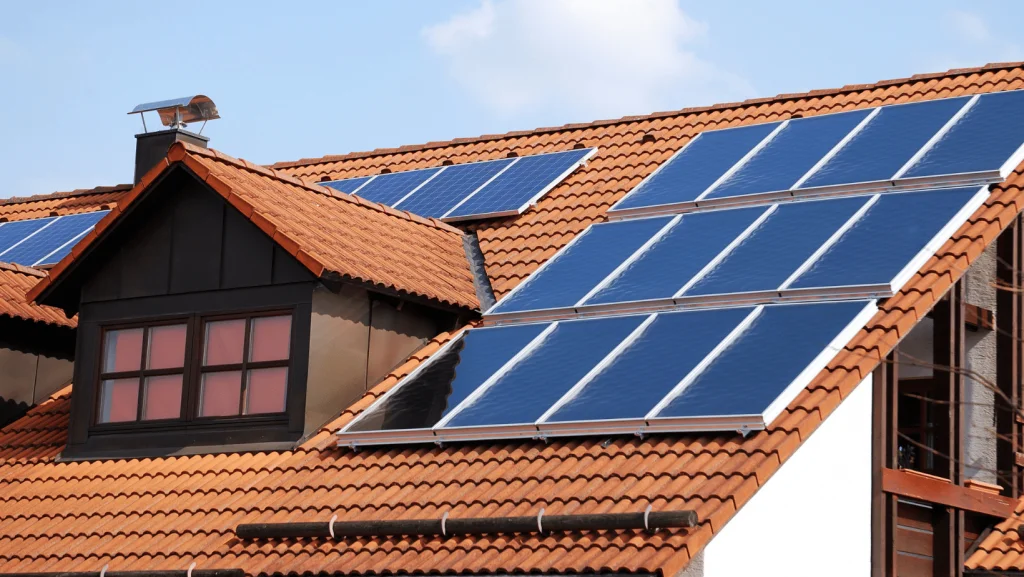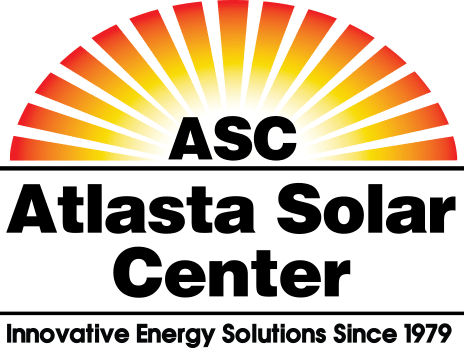There is a lot to know about Solar panels when it comes to your home and property. This is especially true when trying to figure out what your home, cabin, commercial space, or R.V. may require. The size of your home dictates the amount of panels you’ll need. But, when it comes to your property, you may also wonder about solar panel size, and have questions like “how much do solar panels weigh,” because of the size, pitch, location, or type of your roof, or capacity of your vehicle.
There are several factors to be considered when preparing to purchase and install solar panels. You need to know the climate you live in, including the amount of sunlight your region provides. Before purchasing solar panels, it’s also important to know your average usage for the previous year for electricity, as well. The company you choose for your solar paneling (such as Atlasta) can direct you to the type panels you should consider, as well as the proper solar panel size for your property.
These are just some of the reasons, regardless which company you go with, why a free solar evaluation helps you understand how to make the switch to solar.

How Big Are Solar Panels?
So, what about specific solar panel size?
When it comes to solar panel size, you’re typically looking at either 3.25 feet by 5.5 feet (250 watt), or the larger ones are 3.25 feet by 6.42 feet (300 watts). Weights range between 19-25 kilograms (or 42-55 pounds) per panel.
- Solar panels are made by connecting each solar cell into a series, and arranging them in parallel lines.
- The standard size of a solar cell is 156 mm X 156 mm (or approximately 6” X 6”).
- For a 60 cell solar panel the cell arrangement is 6 X 10 (6 columns and 10 rows) and for a 72 cell solar panel cell arrangement is 6 X 12 (or 6 columns and 12 rows).
Standard Solar Panel Size
If you’re concerned about whether or not solar panels can properly fit your roof or R.V, you an always give us a call (or reach out to your nearest solar company). It’s usually on the professionals for setting up the proper solar panels sizing for your property. However, if you’d like the specifics, we have standard sizes for you, below:
- The size of a solar panel with 60 cell configuration is 39” X 66”.
- The size of a solar panel with 72 cell configuration is 39” X 77”
- The thickness of a 60 cell or 72 cell solar panel is around 40 mm.
How Much Do Solar Panels Weigh?
Solar panels are made of many components. Most are made of tempered cover glass with an aluminum frame, encapsulation foils, the solar cells which are strung together, junction boxes, and a back sheet. Depending on the size of the panel, a typical solar panel weighs approximately forty pounds. However, a solar panel can weigh as low as 33 pounds, or as high as 50 pounds. Solar panel weight varies across brands.
It’s important to keep in mind that if you have a pitched roof, solar panels add about 2.8 pounds per square foot. If you have a flat roof, they add approximately 5 pounds per square foot. Commercial solar panels tend to be heavier because of their extra length, bringing the weight up to a (standard) minimum of 50 pounds.

Solar Panel Applications
There are various uses for solar panels. Even though sizing and weight of panels can sometimes be an issue for properties, it’s often worth it to talk with a solar company to work through the issues. The price savings, increased property value, and clean energy are often worth the hassle, in the long run.
Besides supplying and storing electricity for homes, consumers utilize solar panels for their recreational vehicles and campers when electricity is not available or they wish to be entirely off-grid. Commercial businesses, as well as mom and pop shops take advantage of the savings and benefits of solar energy. Other businesses and types of buildings also depend on solar for reduced energy costs. Schools, plants, storage facilities, and more depend on cheaper, clean energy. Especially in light of today’s economy, solar is a very smart financial option to reduce monthly bills.
Solar Panel Advantages
Besides providing cheaper and cleaner energy, there are other benefits to solar panels. Depending on your State of residence, for example, they provide tax breaks. Even RVs outfitted with solar, in fact, often offer tax breaks. It may seem like solar is primarily used by residences, but commercial industries that use the technology grow by the day. These industries include the plastics, chemicals, beverages, paper, textiles, dairy, tinned foods, and more. In fact, the number of businesses that take advantage of savings from solar increase each year.
Solar panels are also used commercially to power a number of other processes. Businesses use them to sterilize, pressurize, concentrate, pasteurize, bleach, and preheating water (in the dairy industry). They are also used for thermodiffusion beams (in the timber industry).
The renewable energy of solar power in the U.S. offsets more than 70 million metric tons of carbon dioxide, annually. That is great news for all of us. For reference, that’s about the same as planting 1.2 billion trees!
Get Your Solar Panels from Atlasta Solar
Atlasta Solar keeps panels in stock for quick installations. If you hire us, you don’t need to wait long for the job to get done. We also offer zero-down financing. If you think you may struggle to afford solar power, but want it for your property, we can help. We are also certified installers for Tesla Powerwall, EnerBankUSA, Panasonic Solar, S-Energy, CED Greentech, UNIRAC, Enphase Platinum, Colorado Carbon Fund, and Spruce, to name a few. Our large numbers of installation certifications makes us a clear choice among most solar companies.
Are you interested in a predictable bill, cost savings, and an eco-friendly property? Book a free consultation with us today. We are happy to discuss your solar needs.
